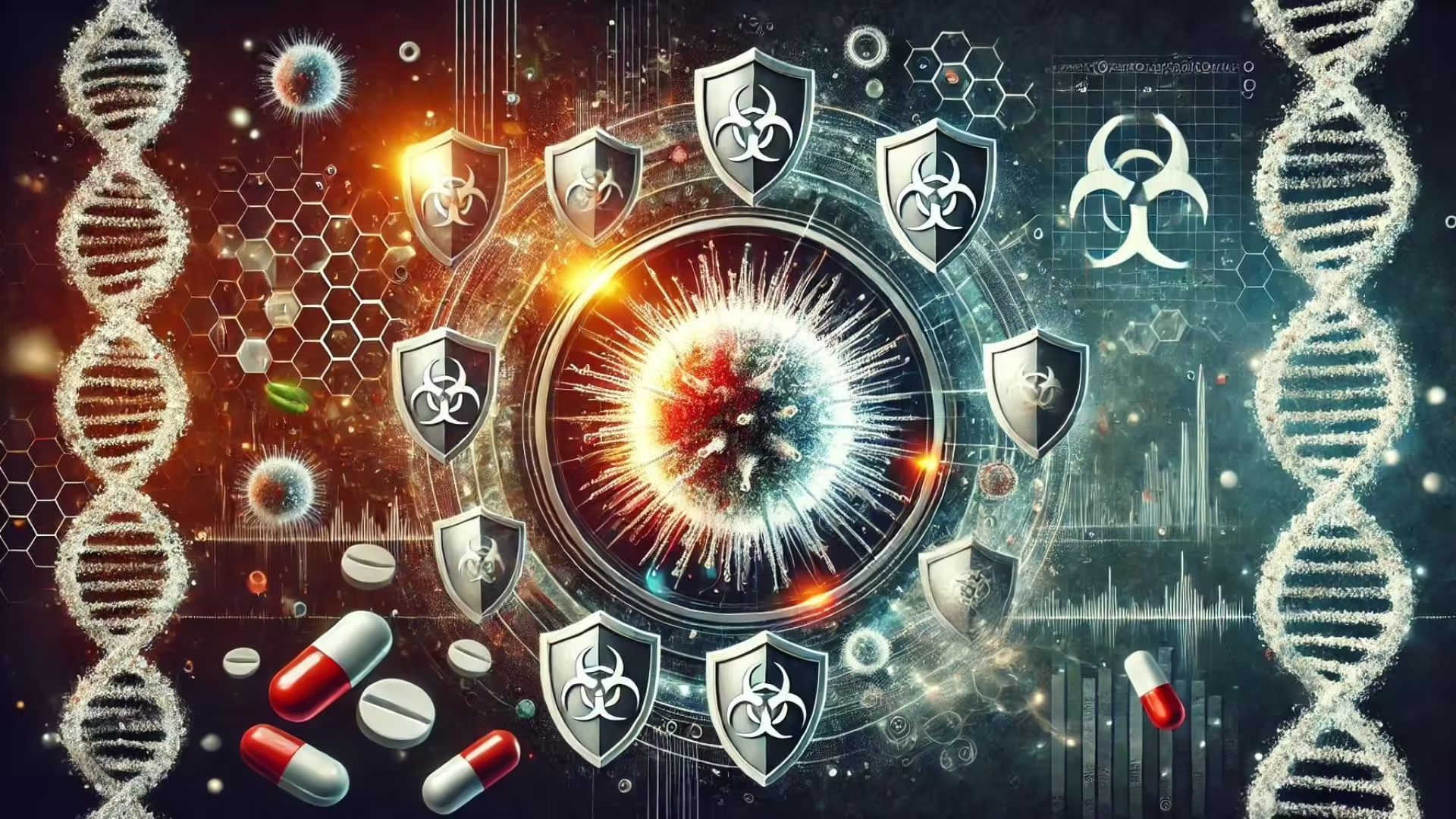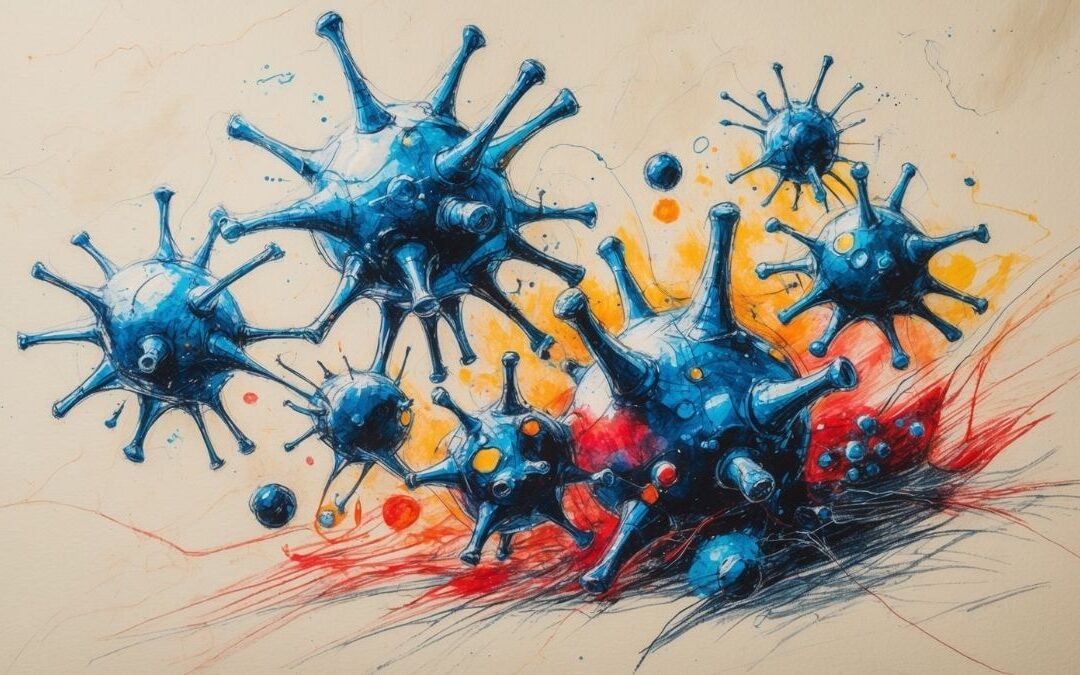Antibiotics have been one of the most important discoveries in modern medicine, saving countless lives by treating bacterial infections that were once deadly. But over the last few decades, a significant problem has emerged—antibiotic resistance. This silent crisis is growing at an alarming rate, threatening to render many of the antibiotics we rely on useless. In this article, we’ll explore why antibiotic resistance is such a pressing challenge, how it impacts our everyday lives, and most importantly, what we can do to fight it.
What Is Antibiotic Resistance?
Antibiotic resistance occurs when bacteria evolve and develop the ability to defeat the drugs designed to kill them. This means that infections caused by these bacteria become harder to treat, leading to longer illnesses, more severe symptoms, and sometimes, even death.
Imagine a routine surgery. Beforehand, patients are often given antibiotics to prevent infections. If the bacteria causing these infections are resistant to the antibiotics, a simple surgery could lead to a life-threatening situation. This is the grim reality we could face if we don’t take action against antibiotic resistance.
Why Is Antibiotic Resistance a Growing Problem?
One of the main reasons for the rise in antibiotic resistance is the overuse and misuse of antibiotics. Many people take antibiotics when they’re not necessary, like for viral infections such as the common cold or flu. In other cases, patients may not complete their prescribed antibiotic course, which gives bacteria a chance to survive and evolve.
Have you ever taken antibiotics for a cold? You’re not alone. It’s a common mistake. Colds are caused by viruses, and antibiotics only work against bacteria. When antibiotics are used incorrectly, it increases the chances that bacteria will develop resistance, making future infections harder to treat.
The Impact of Antibiotic Resistance on Global Health
The impact of antibiotic resistance is felt worldwide. It’s already leading to longer hospital stays, higher medical costs, and increased mortality. The World Health Organization (WHO) has called antibiotic resistance one of the biggest threats to global health, food security, and development today. Without effective antibiotics, we could lose our ability to treat infections, making minor injuries or common illnesses potentially deadly.
Consider a simple cut on your hand. Today, you might put on a bandage and, if it gets infected, take antibiotics to clear it up. But if the bacteria causing the infection are resistant, that small cut could lead to a serious infection, hospitalization, or worse. Antibiotic resistance turns everyday medical issues into life-threatening conditions.
What Can Be Done to Combat Antibiotic Resistance?
There are several actions we can take as individuals and as a society to slow the spread of antibiotic resistance:
- Use Antibiotics Responsibly – Only take antibiotics when prescribed by a doctor and always complete the full course, even if you feel better.
- Avoid Pressuring Healthcare Providers – Don’t insist on antibiotics if your doctor says they aren’t necessary.
- Prevent Infections – Practice good hygiene, like regular handwashing and getting vaccinated, to reduce the chances of infections that might require antibiotics.
- Support Research – Encouraging investment in new antibiotics and alternative treatments is essential, as we need new solutions to stay ahead of resistant bacteria.
Let’s say you go to the doctor with a sore throat. You expect to get antibiotics, but the doctor tells you it’s a viral infection, and antibiotics won’t help. By following the doctor’s advice and not using unnecessary antibiotics, you are contributing to the fight against antibiotic resistance. Simple actions like this, when taken by millions of people, can have a significant impact.
The Role of Farmers and the Agriculture Industry
It’s not just about how antibiotics are used in humans. The agriculture industry plays a significant role in the spread of antibiotic resistance. Antibiotics are often used in animals to promote growth and prevent diseases, even in healthy animals. This practice can lead to the development of resistant bacteria that can be passed on to humans through food consumption or environmental exposure.
Next time you buy meat at the grocery store, consider choosing products labeled as “antibiotic-free.” By supporting responsible farming practices, you can help reduce the unnecessary use of antibiotics in agriculture and slow the spread of resistance.
Antibiotic resistance is a growing threat to global health, but it’s not too late to take action. Whether it’s using antibiotics responsibly, supporting research, or advocating for better farming practices, everyone has a role to play in combating this issue. The consequences of doing nothing are too great to ignore.
The next time you’re prescribed antibiotics, make sure you take them exactly as directed. Don’t stop early, even if you feel better, and don’t demand antibiotics for viral infections. Your actions may seem small, but they’re crucial in the fight against antibiotic resistance. Together, we can ensure that antibiotics remain effective for generations to come.
Expand Your Vocabulary
- Antibiotic Resistance
Meaning: The ability of bacteria to resist the effects of an antibiotic that would normally kill them or stop their growth.
In Context: Antibiotic resistance is what happens when bacteria become immune to medications, making infections harder to treat.
Everyday Use: You might hear about antibiotic resistance when a doctor explains why some infections require stronger or newer antibiotics to cure. - Overuse
Meaning: Using something excessively or more often than necessary.
In Context: Overuse of antibiotics is one of the main causes of antibiotic resistance.
Everyday Use: Think about the overuse of antibiotics the next time you feel the urge to ask your doctor for medication when you have a minor illness that might not need it. - Misuse
Meaning: Using something in the wrong way or for the wrong purpose.
In Context: Misuse of antibiotics, like not finishing a full prescription, contributes to the spread of resistant bacteria.
Everyday Use: Misuse isn’t just limited to medications—you can misuse everyday items like technology if not used responsibly. - Global Health
Meaning: Health issues that transcend national boundaries and require cooperation between countries to address.
In Context: Antibiotic resistance is now recognized as a global health challenge, affecting countries all around the world.
Everyday Use: When you hear about pandemics or widespread health issues like antibiotic resistance, they are often framed as global health problems. - Bacterial Infections
Meaning: Infections caused by harmful bacteria that can multiply in the body, leading to illness.
In Context: Antibiotics are used to treat bacterial infections, but when bacteria become resistant, those infections become harder to treat.
Everyday Use: Common bacterial infections like strep throat are treated with antibiotics, but they can become much more dangerous if the bacteria involved develop resistance. - Vaccination
Meaning: The process of administering a vaccine to stimulate the body’s immune response against specific diseases.
In Context: Getting vaccinated is a way to prevent infections, reducing the need for antibiotics and thus helping combat antibiotic resistance.
Everyday Use: When you get your flu shot or COVID-19 vaccine, you’re not just protecting yourself—you’re contributing to the broader effort to prevent disease. - Preventative Measures
Meaning: Actions taken to prevent something undesirable from happening.
In Context: Good hygiene, vaccination, and responsible use of antibiotics are key preventative measures to combat antibiotic resistance.
Everyday Use: You take preventative measures every day, whether by wearing a seatbelt to avoid injury or washing your hands to prevent illness. - Sustainable Farming Practices
Meaning: Methods of farming that aim to meet current needs without compromising the ability of future generations to meet their needs.
In Context: Supporting sustainable farming practices, such as avoiding the unnecessary use of antibiotics in livestock, can reduce the spread of antibiotic resistance.
Everyday Use: Sustainable practices aren’t just limited to farming—they apply to many areas of life, from recycling to conserving water. - Hospitalization
Meaning: The process of admitting someone to a hospital for treatment.
In Context: Antibiotic-resistant infections often lead to longer and more expensive hospitalizations.
Everyday Use: If a minor infection can’t be treated with standard antibiotics, it can result in a serious illness that requires hospitalization. - Multidrug-Resistant
Meaning: Bacteria that are resistant to multiple antibiotics, making them particularly difficult to treat.
In Context: Multidrug-resistant bacteria are a growing concern in hospitals and healthcare settings, where infections spread more easily.
Everyday Use: The term “multidrug-resistant” is often heard when discussing the most dangerous and hard-to-treat infections, which can require advanced medical treatments.
Let’s Talk
- How often do you or people around you take antibiotics? Have you ever stopped taking them early once you felt better? How does this behavior contribute to antibiotic resistance?
- Do you think there’s enough public awareness about antibiotic resistance? What would help spread more information about the issue?
- What steps do you take in your daily life to prevent infections? Do you think you could improve your hygiene or health practices to reduce the need for antibiotics?
- Have you considered the impact of the food you buy on antibiotic resistance? Would you be willing to switch to antibiotic-free products to support sustainable farming practices?
- What role do you think governments and healthcare organizations should play in combating antibiotic resistance? Is enough being done to address the issue?
- Imagine a world where common infections can no longer be treated with antibiotics. How would that affect your daily life, and what would be the biggest challenges?
- Should the use of antibiotics in farming be more strictly regulated? How might this change the availability or cost of food?
- How can the healthcare system encourage patients and doctors to be more responsible in prescribing and using antibiotics? Would public campaigns help, or is something more needed?
- What are your thoughts on supporting research into new antibiotics or alternative treatments? Do you think more focus should be placed on discovering solutions to antibiotic resistance?
Reflect on these questions, and if you feel inspired, share your thoughts with friends, family, or in the comments section below. Antibiotic resistance affects everyone, and the more we discuss it, the better equipped we’ll be to address this global challenge.










0 Comments